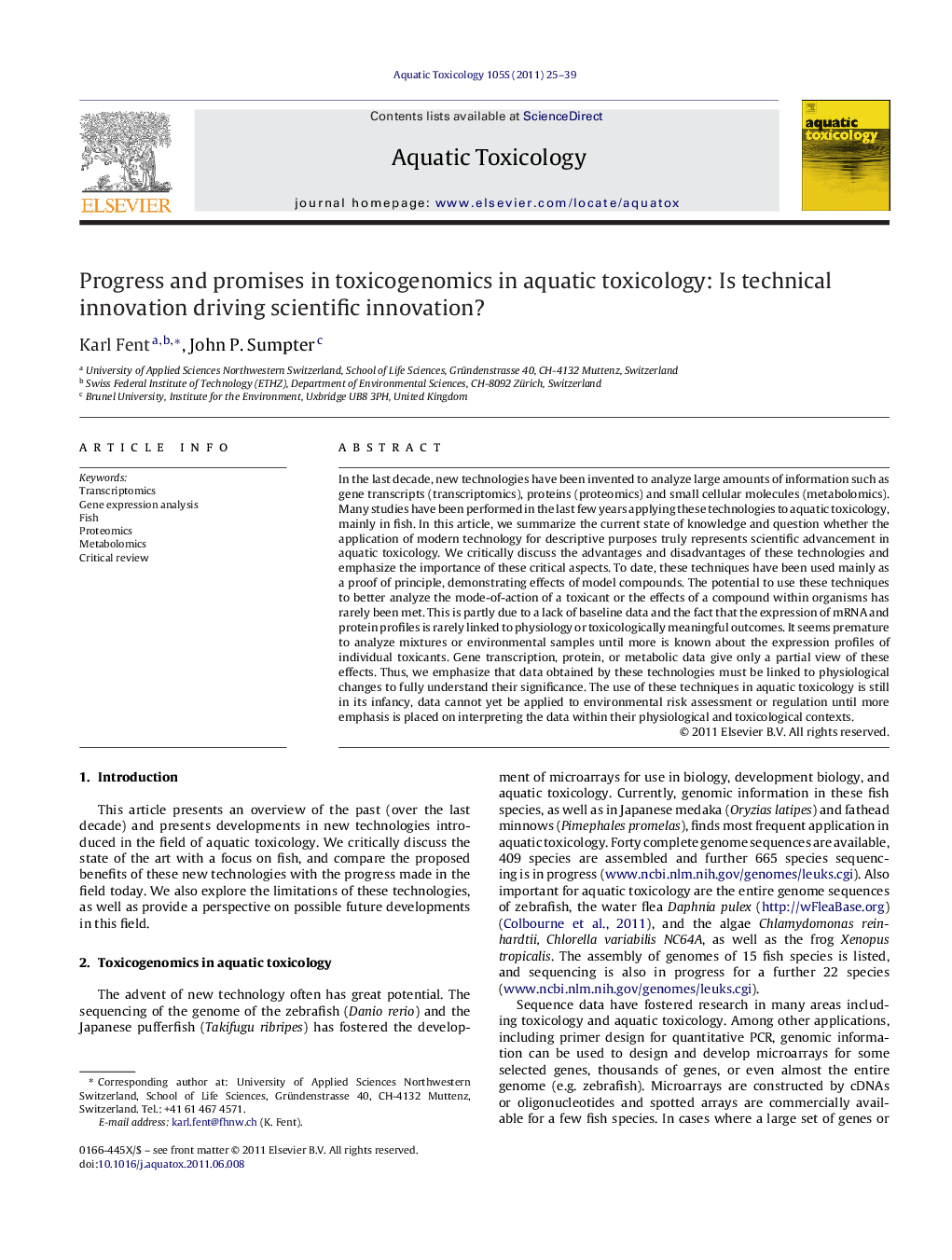| کد مقاله | کد نشریه | سال انتشار | مقاله انگلیسی | نسخه تمام متن |
|---|---|---|---|---|
| 4529970 | 1625983 | 2011 | 15 صفحه PDF | دانلود رایگان |

In the last decade, new technologies have been invented to analyze large amounts of information such as gene transcripts (transcriptomics), proteins (proteomics) and small cellular molecules (metabolomics). Many studies have been performed in the last few years applying these technologies to aquatic toxicology, mainly in fish. In this article, we summarize the current state of knowledge and question whether the application of modern technology for descriptive purposes truly represents scientific advancement in aquatic toxicology. We critically discuss the advantages and disadvantages of these technologies and emphasize the importance of these critical aspects. To date, these techniques have been used mainly as a proof of principle, demonstrating effects of model compounds. The potential to use these techniques to better analyze the mode-of-action of a toxicant or the effects of a compound within organisms has rarely been met. This is partly due to a lack of baseline data and the fact that the expression of mRNA and protein profiles is rarely linked to physiology or toxicologically meaningful outcomes. It seems premature to analyze mixtures or environmental samples until more is known about the expression profiles of individual toxicants. Gene transcription, protein, or metabolic data give only a partial view of these effects. Thus, we emphasize that data obtained by these technologies must be linked to physiological changes to fully understand their significance. The use of these techniques in aquatic toxicology is still in its infancy, data cannot yet be applied to environmental risk assessment or regulation until more emphasis is placed on interpreting the data within their physiological and toxicological contexts.
► The current state of toxicogenomics, proteomics and metabolomics in aquatic toxicology is critically reviewed.
► Advantages and disadvantages of these technologies are described.
► Critical aspects associated with these technologies are discussed.
► We conclude that technical innovation is currently not driving scientific innovation.
► We emphasize that significant progress is made in the future only if these technologies are linked to functional analyses (phyisological and toxicological outcomes).
Journal: Aquatic Toxicology - Volume 105, Issues 3–4, Supplement, October 2011, Pages 25–39